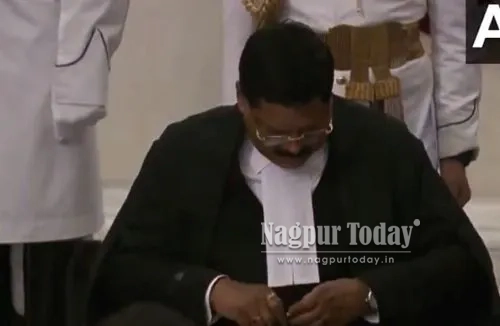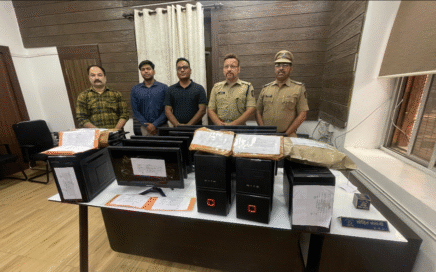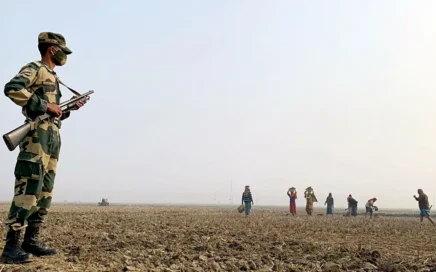 Justice Bhushan Ramkrishna Gavai was on Wednesday sworn in as the 52nd Chief Justice of India (CJI) today, becoming the first Buddhist and only the second judge from the Scheduled Castes to ascend to the nation’s highest judicial office.
Justice Bhushan Ramkrishna Gavai was on Wednesday sworn in as the 52nd Chief Justice of India (CJI) today, becoming the first Buddhist and only the second judge from the Scheduled Castes to ascend to the nation’s highest judicial office.
His elevation is both historic and symbolic, representing the values of inclusivity and constitutional morality that the judiciary upholds.
Justice Gavai will serve as the Chief Justice until his retirement on November 23, 2025. As he dons the mantle of Chief Justice, all eyes will be on him — not just for the judgments he delivers, but for the legacy he shapes.
Justice Gavai has been part of several important benches that have passed crucial orders, including those condemning bulldozer actions and laying down stringent norms to curb such practices.
He was also part of the Constitution Bench that delivered landmark verdicts, including:
Upholding the abrogation of Article 370 by the Central Government,
Striking down the electoral bonds scheme,
Upholding the Centre’s 2016 demonetisation move, among others.
A bench led by Justice Gavai granted bail to AAP leader Manish Sisodia in a money laundering case — a ruling that became the basis for granting bail to other accused in the same case. He also presided over the bench that stayed Rahul Gandhi’s conviction in the Modi surname defamation case, and granted regular bail to civil rights activist Teesta Atul Setalvad in a case related to the 2002 Godhra riots.
KNOW MORE ABOUT JUSTICE GAVAI
Justice Gavai was born on November 24, 1960, in Amravati and joined the Bar on March 16, 1985.
He practiced independently at the Bombay High Court from 1987 to 1990, after which he primarily appeared before the Nagpur Bench of the Bombay High Court.
He served as Standing Counsel for the Municipal Corporation of Nagpur, Amravati Municipal Corporation, and Amravati University. He also worked as an Assistant Government Pleader and Additional Public Prosecutor at the Nagpur Bench of the Bombay High Court from August 1992 to July 1993. Later, he was appointed Government Pleader and Public Prosecutor for the Nagpur Bench on January 17, 2000.
Justice Gavai was elevated as an Additional Judge of the Bombay High Court on November 14, 2003, and became a permanent judge on November 12, 2005. He presided over benches dealing with all types of assignments at the Principal Seat in Mumbai and at the Nagpur, Aurangabad, and Panaji benches.
He was elevated to the Supreme Court of India on May 24, 2019.
According to the Supreme Court’s website, in the last six years, Justice Gavai has been part of around 700 benches dealing with a wide range of matters, including constitutional and administrative law, civil law, criminal law, commercial disputes, arbitration, electricity, education, and environmental law.
He has authored around 300 judgments, including Constitution Bench verdicts, upholding the rule of law and safeguarding the fundamental, human, and legal rights of citizens.














